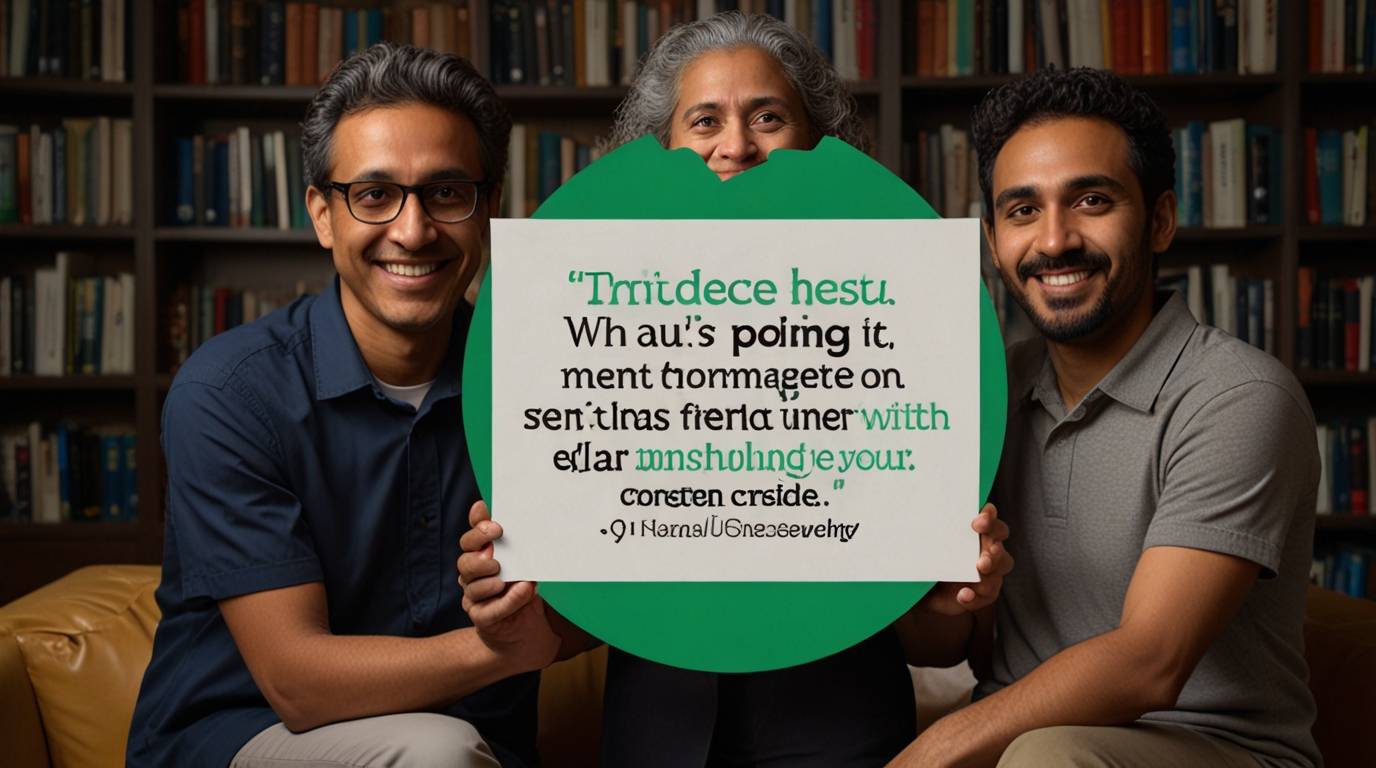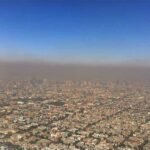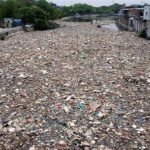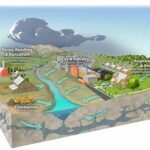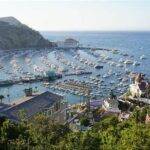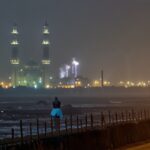How Russia’s War in Ukraine is deepening global climate crisis, one year on.
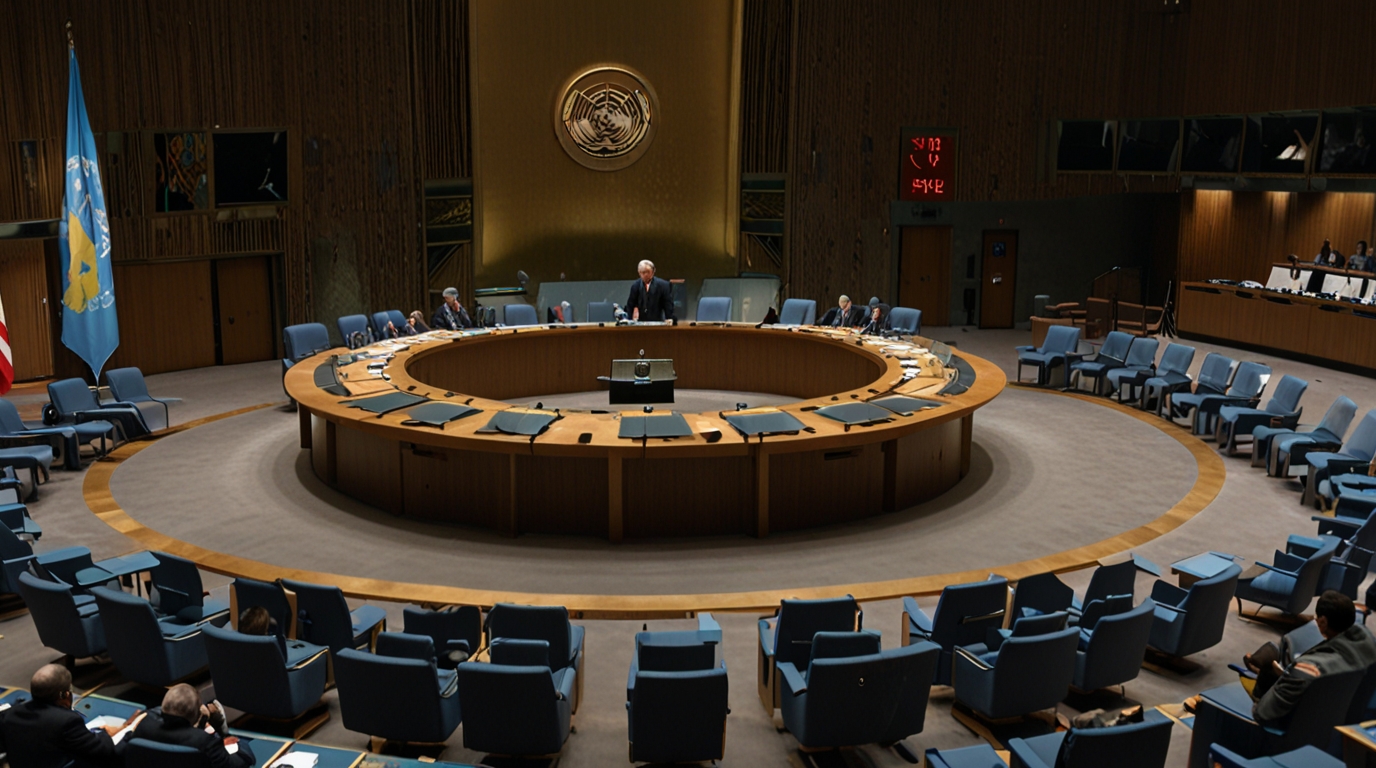
The devastating human and material Loth from the Ukraine war has been well documented and indeed broadcast around the world and the destruction it just goes on but the impact of the conflict on Ukraine’s environment and its diverse ecosystems as well as the indirect consequences far from the battlefield well they’re harder to see and the truth is their colossal and they’ve proved to be something of a game changer in the fight against climate change I’m the Clark Welcome to our special coverage Ukraine war one year on coming
up the relics of War we investigate the collateral damage caused by large dumps of ammunition and what’s known as the green heart of Europe hello I’m Adrian Finnegan in Kiev and I’ll be speaking to Ukraine’s environment minister to find out what’s lost and what it will take to repair the mammoth task of reconstruction what will a sustainable recovery look like and at what cost and ups and downs the war reignites demands for fossil fuels but it’s also driving the push for renewable energy
now the government in Kiev says environmental damage caused by Russia’s war is 46 billion dollars in counting and it wants Moscow to pay for it well toxic waste from Munitions and damaged industrial plants as contaminated groundwater and rivers freshwater ecosystems are polluted 6 million ukrainians now have little or no access to clean water Ukraine is home to 35 percent of Europe’s biodiversity but the war has ripped into crucial habitats both inside and outside protected areas hundreds of thousands of hectares of
forest home to animals and birds and rare plants they’ve been completely destroyed and vital ongoing conservation projects they simply stopped as the war started endangering even more species some conservation zones are still under Russian occupation where we don’t even know what’s lost as of November last year Ukraine’s environment Minister said the conflict directly led to 33 million tons of greenhouse gases entering the Earth’s atmosphere mozambas Ravi begins our special coverage from the town of Demi diva
Israel’s war on Gaza causing Effect Rea
more than a third of Ukraine’s forests have been burned or damaged as a consequence of the war with Russia Ukraine’s government describes it as an area bigger than some European countries where Russian tanks and trenches scarred the Earth the forestry service now carries out controlled Burns in preparation for spring after the expulsion of Russian aggressors the vatic consequences a lot of forest has been damaged and burned the Russians cause forest fires what was burned needs to be restored everything
that was broken or damaged we need to cut and plot a new forests those whose job it is to walk the land and keep it safe they say the environmental impact of the war has been heartbreaking military waste littering on an industrial scale lines streets across the country worse in places like khargheev where a large dump of spent ammunition in the aftermath of Russian bombings is an environmental hazard and illustrates the intensity of the campaign the government says medal of this kind as well as debris from destroyed
buildings can be recycled but the war has been on such a large scale that of the tasks ahead is also enormous polluted waterways have put millions of people at risk of losing access to drinkable water and in at least one case the environmental damage from flooding was self-inflicted when Russia invaded Ukraine blew up one of its own dams turning this entire area into a swamp where there were once narrow canals there is now this wide river and the thinking was that it would serve as a natural barrier against the
Russian tank units and infantry that were headed towards the capital nearby Villages were flooded the water level so high some basement sellers are still submerged Maria tells us the walls of her home are wet and never dry water still drips from them nearly a year later and when plaster falls off she says water flows out I live from this Garden every year this year I have nothing at all the strawberries were flooded the trees and the bushes withered and were drowned our little granddaughter how can we just survive we’re not living we’re just
surviving Ukraine’s environment Minister says some degradation of forests and loss of wildlife is irreversible but his most sobering assessment was of the potential for nuclear fallout that the russian-occupied zapariza nuclear plant the largest in Europe he says Russia is draining a water basin that feeds into reactor cooling systems if we have we will have some situation with water with um explosions with any problems it could be a catastrophical situation not only for Ukraine it could be the catastrophical
Floating cities as an innovative response to climate change
situation for all countries if we come back to Chernobyl Chernobyl is a one reactor. We had a very big problems reactors it’s potentially catastrophe of World level experts say such an extreme scenario in this day and age is unlikely but over a year ago to many ukrainians so was the invasion of their country Zain Bas Ravi Al Jazeera demidev okay let’s talk more about the extent of the environmental destruction and what can be done about it with baghdan vaiko who’s from wwwf Ukraine back then thanks
for joining us so we have Ukraine part of this wider green heart of Europe with rare ecosystems like coastal wetlands and Alpine Meadows and ancient Beach forests then War comes just how bad have the ecological consequences been within Ukraine thank you actually now we’re observing huge damage to at least peace part of Ukraine in different consequences damage to the forest ecosystem for example damage to the arable lands damage to the fresh water steams which affecting millions of ukrainians and now Ukraine.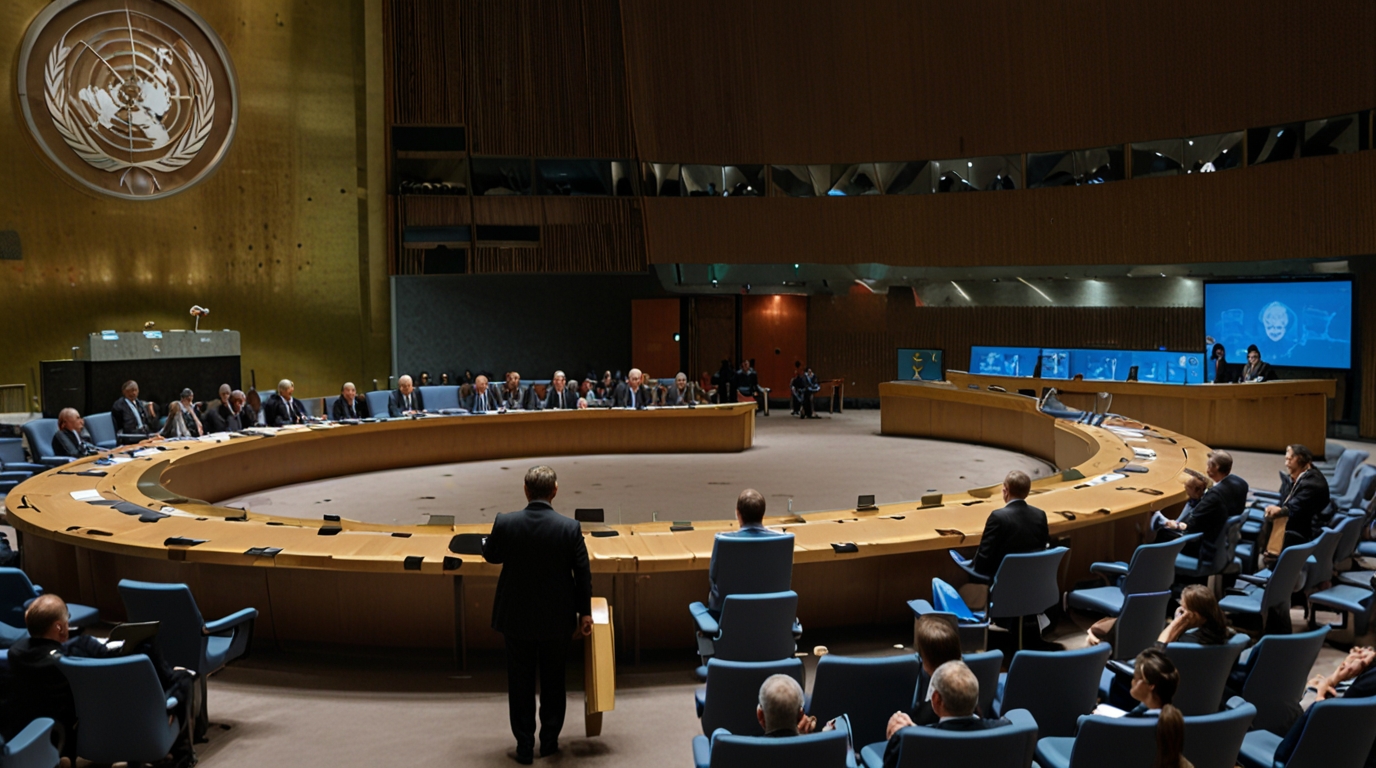
The country top one in the world of mine country area equal to the size of Great Britain it caused another problem and I would like to provide examples so related to the pollution of soil here in Ukraine and as you may notice the war now concentrated on the south and east part of Ukraine through the world the richest soils which produce a tremendous amount of food for the world and as a result now 20 percent of those Ukrainian herbal lands polluted heavy polluted and could not be used in the traditional way which
means that near 100 million of people in the Middle East and Asia will not receive those available food which may cause it really really is deeply troubling isn’t it all sorts of species under thread as well lots of rare animals too has it been possible to quantify the degree of loss it’s difficult to judge right now because war is to continue and huge rare area of uh Ukraine affected by the war but now we have reports when some rare animals were affected for example like Bisons on the police region uh due to uh
miles for example and there are even smaller animals reported as killed by months and what will happen in the following year and so on it’s difficult to judge because it’s not just physical distraction of rare animals like bison but also total disruption of the environment they’re living in okay how do we come back from this once a war is over how is it even possible to repair this environmental damage some unfortunately some environmental damage will be impossible to recover and we recognize this but war is total
disaster from one side but from Another Side it’s great opportunity and we see this as a great opportunity to build back better Ukraine which means to implement the best available practices and starters here in Ukraine to make recovery green what does it mean it means to build energy efficient building to implement best practice in Industry to make those industry much more environment friendly does this mean to implement a renewable energy here in Ukraine okay back then we’re gonna have to leave it there do you appreciate it there for
setting out the stall for us thanks very much indeed a big Don Vico from WWF all right we’re crossing live to Kiev now my colleague Adrian Finnegan standing by and Adrian you must have seen evidence of this environmental loss as you traveled through to Keith yes we entered the country from Poland Nick in the west it’s a six-hour drive from naviv uh to Kiev and at least to the untrained eye the environmental damage isn’t immediately obvious until you start to get to the outskirts of Keith where you see uh bombed out
buildings and where the road runs through our forest areas of of trees that have been cut down taken out from the side of the road to allow tanks to sit there with the turrets uh with their guns pointing uh down the road um Hearing in Kiev again to the untrained eye uh the damage is not immediately obvious but colleagues who’ve been reported from the east of the country tell me the further east you go the more apparent environmental damage comes one interesting thing struck me local authorities haven’t been
damage have been recorded 51 billion dollars worth of damage and that’s just the damage that you’ve been able to assess what’s going to happen to all of that evidence that you’ve gathered will anyone be held legally responsible for what’s happened to the to the environment today we have more than 51 billion dollars environmental damages in Ukraine from the first day of the war we began to develop new methodologies which we use now to calculate all environmental damage the work is very hard very hard
challenge but we do it and I understand that the figures of 51 billion will only increase because every day we calculate a new new damages new cases and why we do it first of all because we understand that we need to put all the results of this calculation to General basket of all damages of Ukraine we understand that environmental damage could be paid back from Russians and we need to to make our best to get money from them for environmental damage when the conflict is over how long is it going to take to repair the damage how much will it cost
and and can it be repaired we were hearing from from the WWF a few moments ago where they said that some environmental damage is permanent um I would like to separate these questions to two things first things in the repair and of the infrastructure is the development of new uh new infrastructure and to build back better if you say about infrastructure but the second issue is that now I understand that we have the some parts of our nature which we lost forever because any money anytime will help us to repair
burn trees you know one day to to to to repair all what Russian army destroy now we have a lot of pollutant into the in the air and I understand any money will help us get it back from the from there what are your thoughts on on what this conflict has done to the environment globally not just to to local ecosystems but to the to the global climate you know Russians they are like Barbarian they don’t understand that environmental has no border and um all pollution all emission um in future now in Ukraine this
pollution this is a pollution in any part of the world in future so I think that this is the biggest environmental impact for last 10 years it’s been really good to have you on the program many thanks did for being with us that’s Ukraine’s environment Minister Ruslan struletz back to you Nick Adrian thanks very much indeed Adrian Finnegan there in Keith well for most victims of war there are established ways to push for justice and accountability but for the environment it’s not so clear in the 1990s the U.N
security Council voted to force Iraq to pay three billion dollars in environmental damage this was after retreating Iraqi troops set fire to 700 oil wells in Kuwait and sent millions of barrels of oil pouring into the Gulf in Laos the most heavily bombed country on Earth Aid organizations have paired D mining efforts with the creation of waste management and recycling programs and Decades of conflict have destroyed more than half of Afghanistan’s forests organizations focused on replanting tens of thousands of trees and teaching
sustainable farming but ongoing progresses in question after the talibans returned to power and back in Iraq people around mosul suffered devastating effects in 2016 when isil Fighters torched dozens of oil wells during their Retreat the United Nations is working with the government and oil companies to explore bio remediation so-called are using natural microbes to try and break down the petroleum in the soil all right let’s talk to Doug Ware he is the research and policy director at the conflict and environment.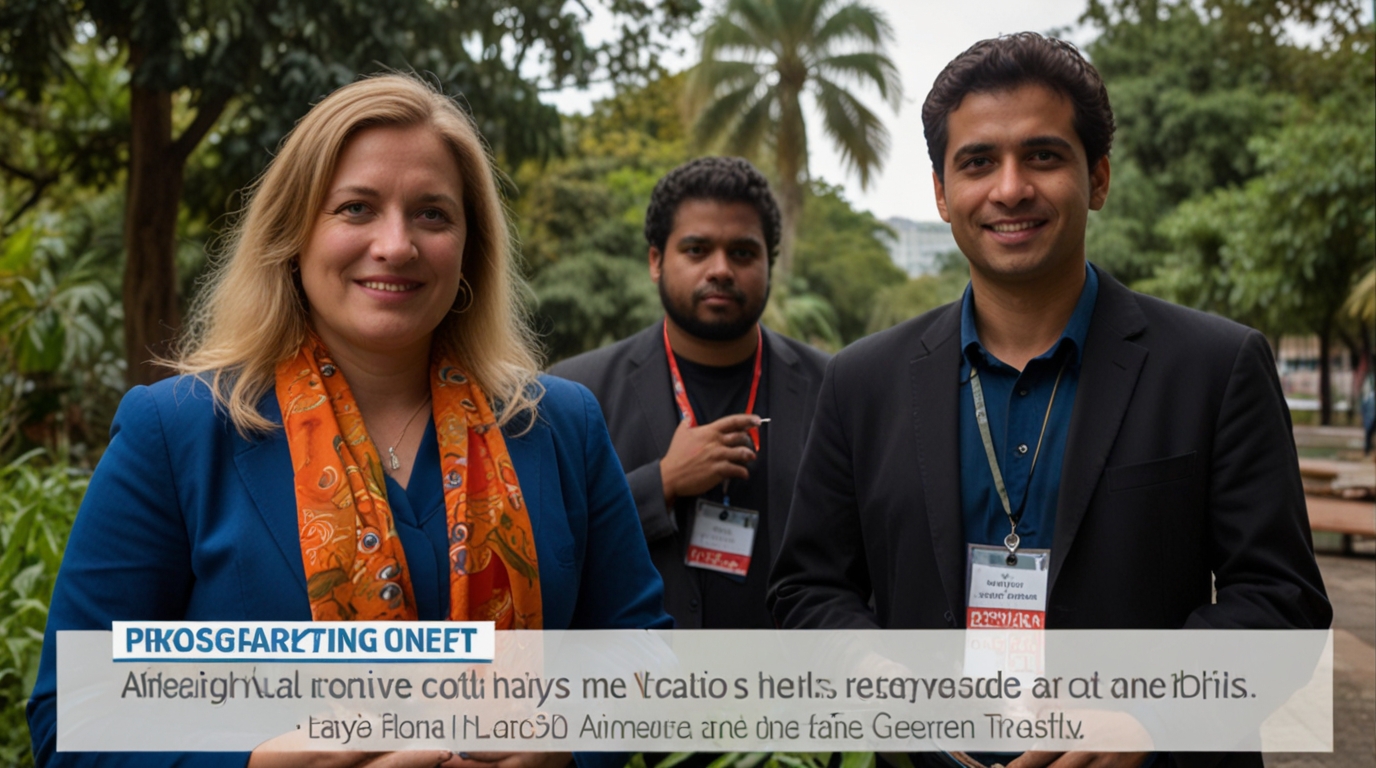
Observatory joins us now from the hebden bridge in the UK so Doug first up tell us more about where the environment stands in international law in terms of Warring parties accountability thanks Nick so under International humanitarian law which are the laws of war both sides have an obligation to minimize damage to the environment during conflicts for example through taking precautions in what they target we also have a wider Suite of rules which were agreed last year some 27 legal principles that address Environmental Protection before during
and after armed conflicts and during situations of occupation I mean certainly in the case of Ukraine we’ve seen very serious and widespread environmental damage and some of this has been related to how and where the war has been fought for example Russian attacks on Industrial and energy infrastructure as well as destruction to urban areas with the environment Minister calling on Russia to foot the bill there is precedence for that in Iraq isn’t it as we’ve just been saying there is yeah that’s pretty much the
only time we’ve seen a substantive amount of body dealing with question of reparations um unfortunately in this case it’s not something which can be duplicated because Russia is a permanent member of the UN Security Council with veto power over what goes ahead so in this instance Ukraine has been exploring other opportunities and other options through the U.
N General Assembly rather than its Security Council you’ve said that the environmental footprint the damage the environmental damage is perhaps more visible in this war than in any others why is that this is one of the really interesting things about the invasion of Ukraine so the environment is very often under prioritized in armed conflicts despite its protection being important for People’s Health and livelihoods and as we see it there are maybe sort of five key reasons why that’s different this time around so one of them has been
Russian tactics so the unprecedented occupation of nuclear power plants or the targeting of dams is environmentally risky objects we also have much greater access to remotely accessible environmental data than we used to have and these are the kind of sources that we use at Sea obs simply Ukraine’s domestic environmental capacity is quite well developed so we’re at the governmental academic or Civil Society level and as we’ve heard from Muslim Australia it’s just now there’s been a lot of
public advocacy from the Ukrainian government over the wars environmental Dimensions so all of those four sort of factors also sitting on top of sort of Greater International public concern over the environment whether it’s climate change or biodiversity loss or pollution so you collect this data and then what do you do with it so we use open source intelligence to remotely monitor the environmental dimensions of the invasion so we use social media platforms like telegram to identify incidents and with their new
satellite remote sensing to verify that they took place and what some of their implications might be so with this approach we’ve been able to undertake an initial analysis of the risk to human health or to ecosystems so the data that we’re collecting and the process of doing it is supported by the United Nations environment program as part of its response to the conflict and it’s already being used to help identify and plan assessments on the ground and we can also use the data to help raise awareness of the damage and to
help people like you tell environmental stories and then finally we’re storing that data in such a way but it could be used for future legal proceedings yeah important work all around Doug we appreciate your time thanks very much indeed for joining us here in Alexandria thank you now Russia was the world’s largest exporter of fossil fuels but its invasion of Ukraine has prompted a wholesale rethink of energy Supply in the European Union efforts to become carbon neutral by 2050 have been accelerating in some countries while
some are reopening old coal plants Natasha Butler reports from Eastern France on one Town’s push to go green with its half-timbered homes the small Eastern French town of mutter Schultz is steeped in history but it’s a community firmly turning towards the future a decade ago the mayor launched a project to build a hydroelectric plant it came online four years ago and now generates enough electricity to power the town’s public buildings a huge asset at a time when Energy prices are rising being self-sufficient when it comes to
energy is something everybody wants now particularly as prices are high but here we certainly feel more relaxed because our municipal buildings are pumped by this plant so we have barely any extra costs because solar panels on roofs reduce lighting and better isolation for buildings are all part of the mayor’s plan to generate enough electricity one day for the whole town and since the war in Ukraine mutter shorts has become a model for other communities looking to do the same I’d like the World to Change but we
can’t do it alone there has to be a collective approach and what we’re doing in this town could be done nearly anywhere the push for energy Independence in this town is the sort of project being encouraged across France and elsewhere in the European Union as the block accelerates its effort to transition to Green energy because of the war after the invasion the EU launched emergency measures to speed up the rollout of Renewables including wind and solar power as part of the blocks aim to be carbon neutral by 2050.
the war in Ukraine made us see that Russia used energy as a weapon and was no longer a reliable partner so we had to launch a strategy energy to replace Russian gas with Alternatives including LNG increased Renewables and reduce our overall consumption it’s clear that concerns over climate change were already driving the eu’s green transition but the war in Ukraine has injected a new sense of urgency and an awareness that energy Independence isn’t only desirable but also a question of security Natasha Butler Al Jazeera mutter Schultz
Eastern France now that happens there’s a big renewable energy conference going on in Madrid as we speak and are very pleased to say we have the person who’s running it to run adip who’s executive director of rent 21. joining us now uh Rana great to have you with us so just as the momentum seemed to have veered towards Renewables uh the war comes then there’s an energy crisis and fossil fuels companies slam on the brakes on the green transition and it’s back to Drilling and exploring and so on so what does all of that mean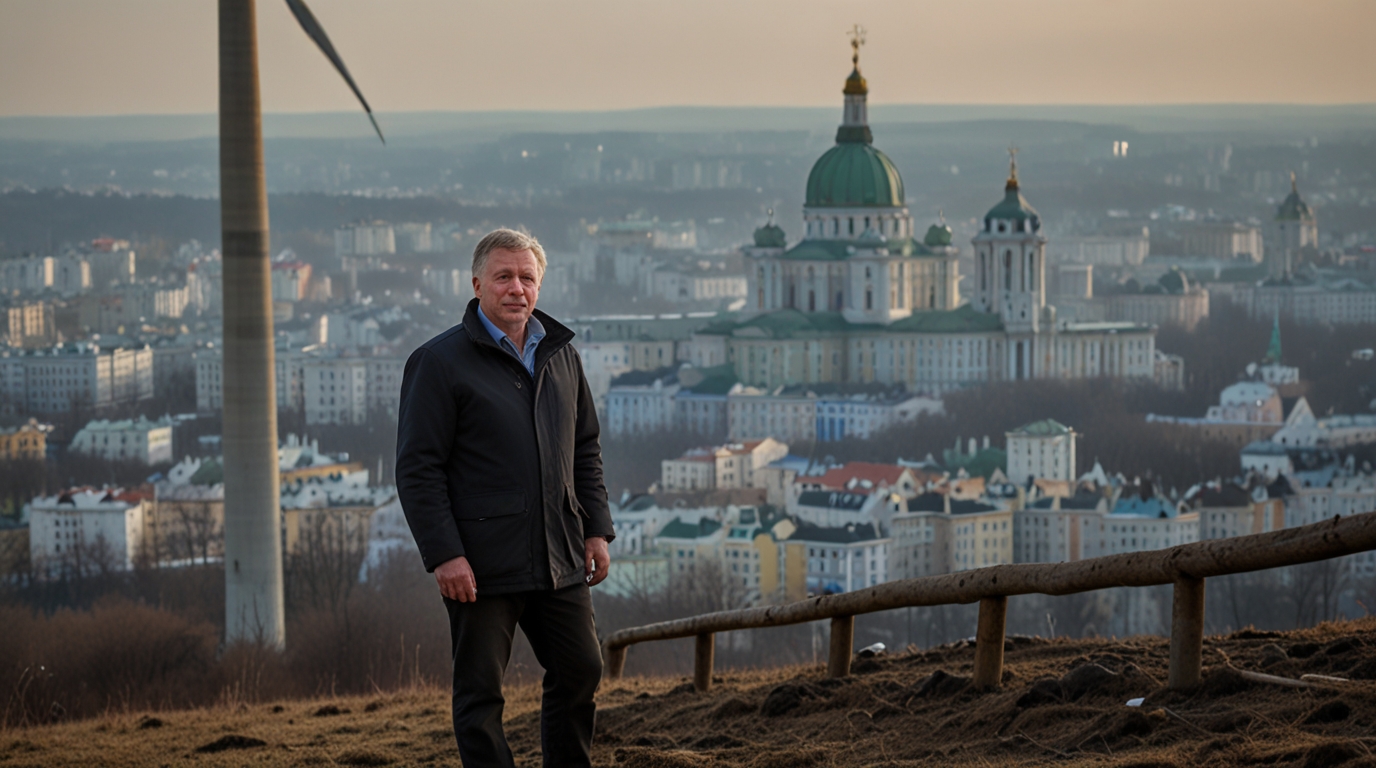
to the for. The push to renewable energy the thing what it means and we have heard it in the presentation before is that there is indeed um an Awakening about the key role energy has and not only in the energy sector but for the oil economic activities and also the opportunities renewable energy present in terms of anti-security but also in terms of redistribution basically of economic power because the Realty clearly is that Renewables allows citizens cities companies to produce their own energy and benefit from the
fact that it’s also the least cost option so that is something which is very positive but we also see that there is as you rightly said A disruption many governments have basically responded with short-term measures subsidizing fossil fuels even more we have massive um benefits on the faith five major oil and gas companies but also fossil fuel producing and exporting countries and on the other side there is energy poverty faced by mail millions of people and lots of rather poorer countries depending on fossil fuel Imports really
facing facing economic challenges with regard to this you mentioned that fossil fuel subsidies and it’s fascinating isn’t it because one trillion dollars was was put towards subsidies last year where during the energy crisis imagine if all of that went to Renewables um no unfortunately it did not because it went into fossil fuel subsidies and there’s one of basically the key elements so the ND price is one of the reasons why fossil fuel has been the benefits of fossil fuel players have increased so much but also the subsidies.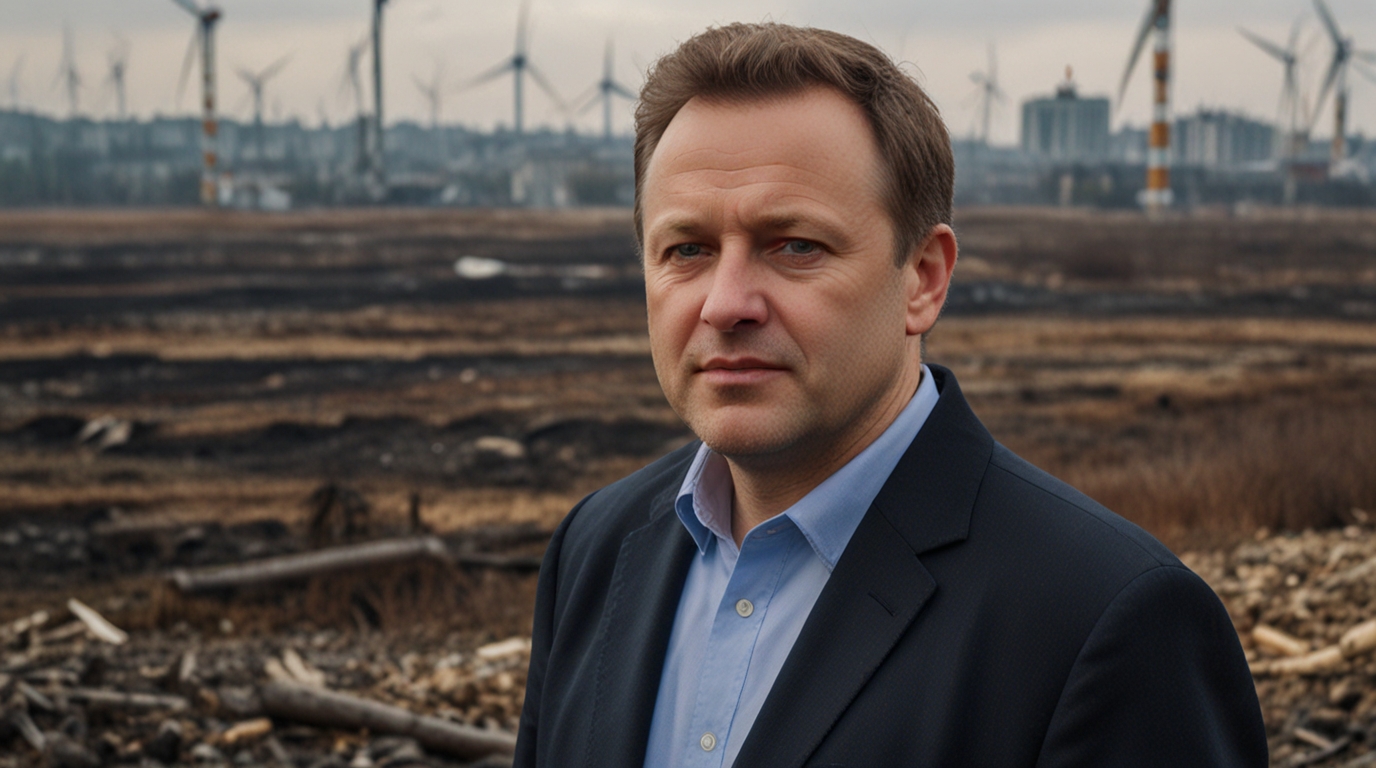
This is very clearly why being here in Madrid with the international Renewal Energy conference community and government is fundamental because it is that renewable energy needs to become one of the key responses of the governments to address the climate towns clearly and the development towns but also the economic and the energy security and security challenges we have okay we’re going to have to leave it there do you appreciate that it’s short and sweet but great to have your voice thanks very much indeed do appreciate
that thanks a lot finally another environmental casualty of the Ukraine war has been scientific collaborations that monitor the Poland North Colin Baker has more on the impacts of Arctic research the effects of climate change happen fastest in the Arctic here Wetlands forests permafrost unique species and Indigenous peoples live face to face with the direct impacts of our warming planet scientists have monitored the Arctic for Generations but after the start of the war in Ukraine collaborations froze data streams built up for years went quiet as
Nations and universities ceased Partnerships with counterparts in Russia the effects on science were immediate one of the most concerning data streams you know that we have lost is real time or near real time observations of atmospheric greenhouse gas concentrations from from towers that are placed across Siberia interact a European network runs 89 collaborative Arctic monitoring stations 21 across Russia lost funding After the War Began information that can only be gathered on the ground is already being lost. We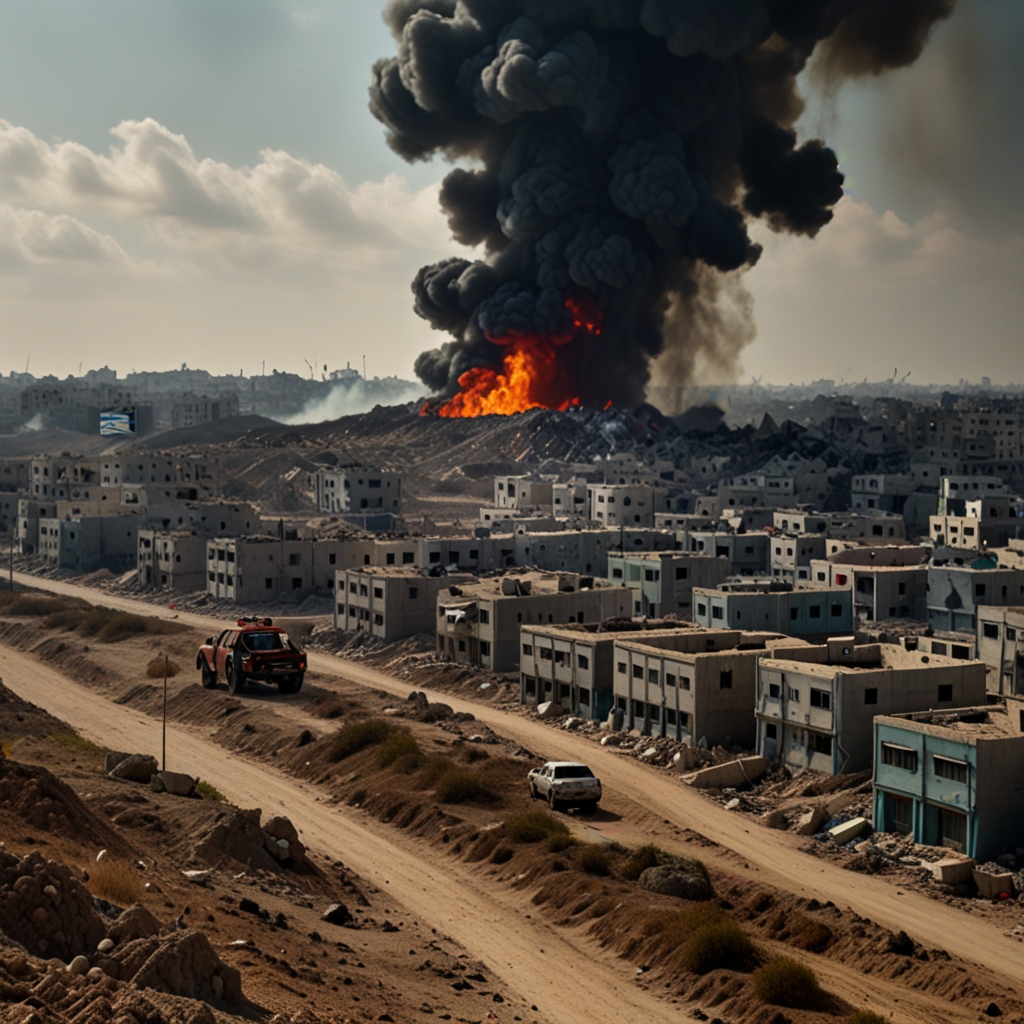
can’t understand planet Earth without understanding the Arctic because in the Arctic we have what they call positive feedbacks that when we stir up something in the art because of fossil fuel emissions from the rest of the world then a chain of event happens in the outfit but those events don’t stay there there’s an amplification of climate change which happens in the rest of the world the Sami Council represents indigenous peoples across four countries including Russia it’s suspended funding its
Russian Representatives while maintaining scientific research the larger scale monitoring is important but as indigenous peoples in the Arctic we have embedded in our culture it’s a long-term monitoring on a more local and Regional scale over the Millennials have been living in these areas we have accumulated a lot of of monitoring data to put it that way which is embedded in our indigenous languages the Arctic is warming fast the full costs of the data loss may not be known for some time Colin Baker Al Jazeera.
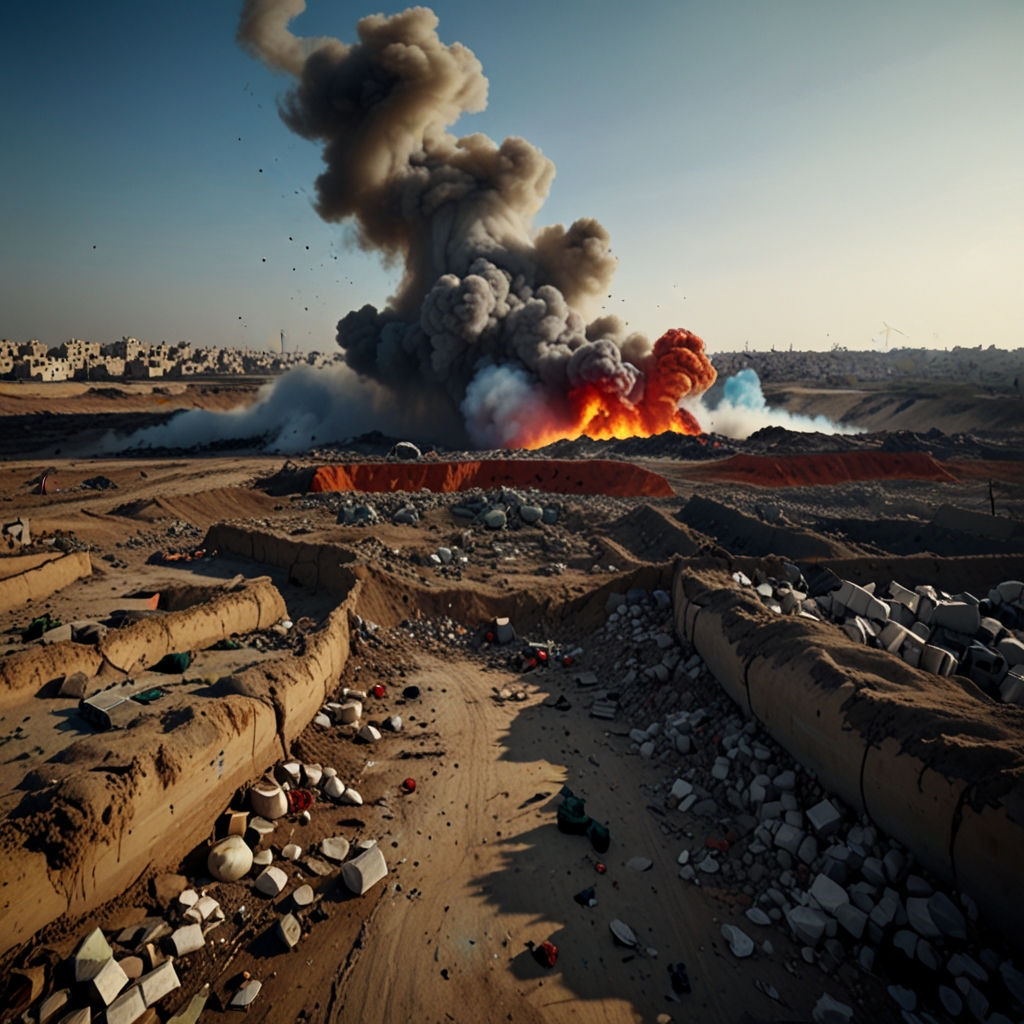
One of the most intense bombing campaigns since WW2 will leave not just a legacy of grief for Gaza, but lasting environmental damage too. Thousands of Israeli and Western-supplied bombs pollute the air and ground, leaving a new layer of toxic chemicals in Gaza’s soil, added to those left after previous wars. Can Gaza recover? Presenter: Adrian Finighan Guests: Nada Majdalani – Palestinian Director of EcoPeace Middle East Marwan Bardawil – Engineer and Head of Gaza Programme Coordination Unit, Palestinian Water Authority Hadeel Ikhmais – Director General of the Climate Change Section of the Palestinian Authority’s Environment Quality Authority.
